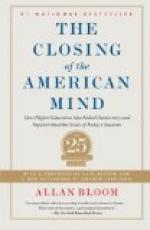For offensive war, it must be admitted, the efficiency under the boss’s whip will go further. For defensive war, or war for high moral aims, it is desirable that the individual soldier should think for himself, respond to the high appeal. Thus for such warfare the efficiency of voluntary effort and cooperation is superior. An autocracy would better rule its soldiers by a military caste; there can be no excuse for such in a democracy. Thus, the utmost possible fraternization of officers and men is desirable, and social snobbery, the snubbing of officers who come up from the ranks, and other anachronistic survivals, should be stamped out, as utterly foreign to what should be the spirit of the military arm of democracy.
Further, in estimating the two types, one must remember that paternalism may exercise its power in secret and that it accomplishes much in the dark. Democracy, on the other hand, is afflicted and blessed with pitiless publicity. Thus its evils are all exposed, it washes all its dirty linen in public; but the main thing is to get it clean.
When it comes to invention and initiative, as already indicated, democracy has the advantage, immediately, as in the long run. We are the most inventive people on earth, and that quality is a direct result of our democratic individualism. It is a significant fact that most of the startling inventions used in this War were made in America—but developed and applied in Germany. There, again, are evident the contrasting results of the two types of social organization. The indefatigably industrious and docile German mind can work out and apply the inventions furnished it, with marvelous persistency and effectiveness, under paternal control. We have the problem of achieving by voluntary effort and cooperation a persistent thoroughness in working out the ideas and inventions that come to us in such abundant measure.
The path of democracy is education.
XIX
THE SOLUTION FOR DEMOCRACY
When we say that the path of democracy is education, we do not mean that there is an easy solution of its problem. There is no patent medicine we can feed the American people and cure it of its diseases. There is no specific for the menaces that threaten. Eternal vigilance and effort are the price, not only of liberty, but of every good of man. Let things alone, and they get bad; to keep them good, we must struggle everlastingly to make them better. Leave the pool of politics unstirred by putting into it ever new individual thought and ideal, and how quickly it becomes a stagnant, ill-smelling pond. Leave a church unvitalized, by ever fresh personal consecration, and how quickly it becomes a dead form, hampering the life of the spirit. Leave a university uninfluenced by ever new earnestness and devotion on the part of student and teacher, and how soon it becomes a scholastic machine, positively oppressing the mind and spirit.




